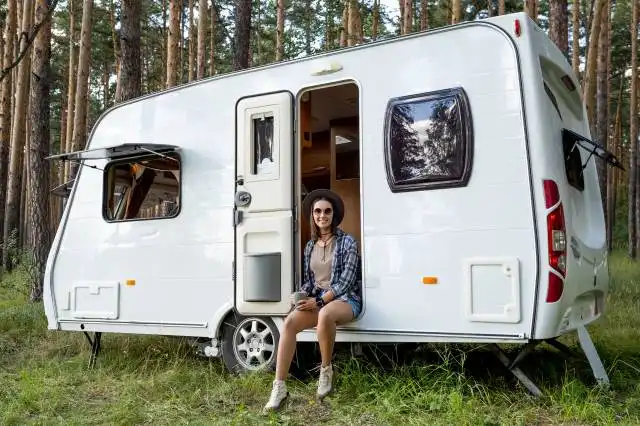Start a Car Rental Business
Discover the Thrill of Running Your Own Car Rental Business!
| Updated


CAR RENTAL BUSINESS
A car rental business is your personal ticket to the fast lane! This venture is all about offering vehicles on lease to people who need them temporarily, typically travellers or folks with damaged vehicles. As a novice entrepreneur, this is your chance to say bye-bye to monotony since you'll be dealing with a wide variety of cars and even a wider variety of clientele. So, buckle up for an entrepreneurial journey that offers high-speed potential profits, mixed with the enjoyable rumble of a changing landscape of wheels!
Jump to Business Plan
RELATED BUSINESS IDEAS
Browse ALL Rental & Delivery Services Business Ideas
Discover Your Perfect Domain
Unlock the door to your online success with our hand-picked selection of premium domain names. Whether you're starting a new venture or rebranding an existing one, the right domain can set the tone for your digital presence. Browse through our curated list, each with its unique potential to enhance your brand's visibility and credibility.
CAR RENTAL MINI BUSINESS PLAN
This a quick reality check to help you identify the strengths and weaknesses of your business concept before you dive in.
Quick Facts Format Analysis for a Car Rental Business
Expected Percent Margins:
- Gross Margin: Approximately 70-80%
- Net Profit Margin: Approximately 10-15% depending on scale and operational efficiency
Earnings Expectations:
- Daily Earnings: Depending on the number of cars rented, roughly $200 - $500 per car
- Weekly Earnings: Around $1,400 - $3,500 per car
- Monthly Earnings: Approximately $6,000 - $15,000 per car
- Annual Earnings: From $72,000 - $180,000 per car
Actions to Hit Those Numbers:
Fleet Management:
- Initial Investment: Roughly $100,000-$300,000 for a quality fleet of different car models.
- Maintenance: Regular servicing and maintenance of cars to reduce unexpected costs.
Marketing and Customer Acquisition:
- Digital Marketing: Invest in search engine marketing and SEO. Also plan a budget for local advertisements in tourist areas, airports, and hotels.
- Partnership: Collaborate with hotels, travel agencies, and airlines for potential partnerships. Dependent on your budget, this can range from $1,000 to $5,000 per month.
Sales and Customer Experience:
- Staffing: Hire a team that's customer-focused and knowledgeable about cars/insurance. Aim for at least 3-4 members for small scale operations.
- Customer Service: Prioritize excellent customer service to encourage return customers and positive word-of-mouth.
Cost Control:
- Operation Costs: Secure a cost-effective operation hub, normally outside city limits or expensive central areas. Operational costs may also involve staff payroll, utilities, and fleet insurance.
Business Operations:
- Open Hours: Ideally, operations should be 24/7, particularly for airport locations.
- Transaction Volume: Strive, on average, for at least 70% utilization rate of your fleet.
Remember these estimates can tremendously vary depending on the location, size of your fleet, market saturation, economic climate, and individual business efficiency. Always consult with a financial advisor for personalized advice.
NOT WHAT YOU HAD IN MIND? Here are more ideas



Browse ALL Rental & Delivery Services Business Ideas
Grab Your Business Website Name
Before you get caught up in the whirlwind of setting up your business, invest in a domain name. It's a small but significant step that lays the foundation for your brand and makes it easier for customers to find and trust you. Just like you wouldn't build a house without securing the land first, don't build a business without securing your domain name.
"Why? Can't that wait?" Here's why it shouldn't
Step 1: Determine if the Business is Right for You
Breakdown of Startup Expenses
Before starting a car rental business, it is important to determine the startup expenses. These expenses may include the cost of purchasing or leasing cars, insurance, registration and licensing fees, and any other related costs. Additionally, there may be costs associated with setting up a website, advertising, and hiring staff. It is important to research and calculate these costs to ensure that the business is financially viable.
Breakdown of Ongoing Expenses
In addition to startup expenses, it is important to consider the ongoing expenses associated with running a car rental business. These expenses may include the cost of fuel, maintenance, insurance, and any other related costs. Additionally, there may be costs associated with website hosting, advertising, and staff wages. It is important to research and calculate these costs to ensure that the business is financially sustainable.
Examples of Ways to Make Money
There are several ways to make money in a car rental business. One way is to charge a daily rate for car rentals. Additionally, car rental businesses may offer additional services such as roadside assistance, insurance, and car cleaning. It is important to research the market and determine which services are in demand and how to price them in order to maximize profits.
Step 2: Name the Business
Choosing a name for your car rental business is an important step in the process. It should be memorable, easy to pronounce, and reflect the values of your business. It should also be unique and not too similar to other car rental businesses in the area. Consider using a combination of words that are related to the car rental industry, such as “Rent-A-Car” or “Auto Rental”. Additionally, you can use a combination of words that represent the values of your business, such as “Luxury Rentals” or “Eco-Friendly Rentals”. You should also consider using a combination of words that are related to the location of your business, such as “New York Rentals” or “Miami Rentals”. Finally, you should also consider using a combination of words that are related to the type of cars you will be renting, such as “SUV Rentals” or “Sports Car Rentals”. Once you have a few ideas, you can do a quick search to make sure that the name is not already taken. Additionally, you should also check with the local government to make sure that the name is not already registered with them.
Step 3: Obtain Business Licenses and Permits
Before you can open your car rental business, you must obtain the necessary business licenses and permits. Depending on your location, you may need to apply for a business license, a seller’s permit, a zoning permit, and a federal tax ID number. You may also need to apply for a special permit if you plan to operate a car rental business in a public area. Additionally, you may need to register with the state’s department of motor vehicles if you plan to rent cars. Once you have all the necessary licenses and permits, you can move on to the next step.
Step 4: Find a Suitable Location
The location of your car rental business is an important factor in its success. You should look for a location that is easily accessible to customers and offers ample parking. Additionally, you should consider the local competition and the cost of renting or purchasing the space. If you plan to rent cars from a physical location, you should also consider the security of the area. Once you have found a suitable location, you can move on to the next step.
Step 5: Purchase the Necessary Equipment
In order to run a successful car rental business, you will need to purchase the necessary equipment. This includes cars, computers, software, and other office supplies. You should also consider purchasing additional equipment such as car seats, GPS systems, and car cleaning supplies. Additionally, you may need to purchase insurance for your business and the vehicles you rent. Once you have purchased all the necessary equipment, you can move on to the next step.
Step 4: Find a Location
Finding the right location for a car rental business is essential for success. It should be in a high-traffic area, preferably near a major airport or highway. Consider the local competition and make sure the location is easily accessible for customers. It should also have enough space for parking and storage of vehicles. Additionally, it should have a secure area for customers to pick up and drop off their vehicles. Make sure the location is zoned for a car rental business and that it meets all local regulations. Consider the cost of renting or buying the space, as well as any renovations that may need to be done. Finally, research the local market to make sure the location is in an area that will attract customers.
Step 5: Purchase Insurance
Insurance is an essential part of any business, and a car rental business is no exception. Before you can begin renting out vehicles, you must purchase insurance to protect your business and customers. You will need to purchase auto liability insurance, which covers any damage to the vehicles that you rent out. You may also want to purchase physical damage insurance, which covers any damage to the vehicles caused by the customer. You may also want to purchase general liability insurance, which covers any damage to property or people caused by the customer. Finally, you may want to purchase workers' compensation insurance, which covers any injuries that your employees may suffer while working. By purchasing the right insurance, you can protect your business and customers from any unexpected costs.
Step 6: Acquire Vehicles
Once the business is registered and the necessary permits and licenses are obtained, the next step is to acquire vehicles for the rental business. This can be done in a variety of ways, such as purchasing vehicles outright, leasing vehicles, or entering into a partnership with a car dealership or manufacturer. Purchasing vehicles outright is often the most cost-effective option, but it requires a large upfront investment. Leasing vehicles is often a more affordable option, but it requires a long-term commitment and may not be the most cost-effective in the long run. Entering into a partnership with a car dealership or manufacturer can be a great way to get access to a variety of vehicles at a discounted rate. It is important to research all of the available options and determine which one is the best fit for the business.
Once the vehicles have been acquired, it is important to make sure they are properly maintained and inspected. This includes regular oil changes, tire rotations, and other routine maintenance. It is also important to make sure that all of the vehicles are properly insured and that all of the necessary paperwork is in order. This will help to ensure that the business is protected in the event of an accident or other incident.
Step 7: Set Up a Website
Setting up a website is an important part of running a car rental business. It allows customers to easily find information about the business, book reservations, and pay for services. A website should include information about the business, such as the types of cars available, the rates, and the policies. It should also include a contact page, so customers can easily get in touch with the business. Additionally, the website should have a booking system, so customers can easily reserve a car and pay for it online. Finally, the website should be optimized for mobile devices, so customers can access it on the go.
Step 8: Market the Business
Marketing is an essential part of running a car rental business. It is important to get the word out about the business and attract customers. There are many ways to market a car rental business, such as creating social media accounts, running ads, and attending trade shows. Additionally, offering discounts and promotions can help attract customers. It is also important to build relationships with local businesses, such as hotels and restaurants, to get referrals. Finally, offering incentives, such as loyalty programs and rewards, can help keep customers coming back.
Step 9: Monitor Performance
Monitoring performance is an important part of running a car rental business. It is important to track the number of reservations, revenue, and customer satisfaction. Additionally, it is important to track the performance of the website, such as the number of visitors and the conversion rate. It is also important to track the performance of the marketing efforts, such as the number of leads generated and the cost per lead. Finally, it is important to track the performance of the employees, such as the number of cars rented and the customer service ratings.
Step 8: Promote the Business
Promoting the business is essential for success. Advertising is the most common way to promote a business. Advertising can include print, radio, television, and online. It is important to be creative when advertising and to reach the right target audience. Social media is a great way to reach potential customers. Utilizing platforms such as Facebook, Twitter, and Instagram can help to spread the word about the business. Additionally, creating a website and blog can help to promote the business. Having a website and blog can help to create an online presence and provide customers with more information about the business. It is also important to create a referral program to encourage customers to refer their friends and family. Offering discounts and rewards can be an effective way to encourage referrals. Finally, attending local events and networking with other businesses can help to promote the business.
Step 9: Manage the Business
Managing a car rental business requires a lot of attention to detail and organization. The business owner should be familiar with the laws and regulations that govern the car rental industry in their area. They should also be familiar with the local market and be able to adjust their pricing and services accordingly. Additionally, they should have a system in place to track customer feedback and complaints, and be prepared to handle any customer service issues that may arise. It is also important to have a system in place to track the maintenance and repair of the vehicles, as well as the cost of fuel and other expenses. Finally, the business owner should be prepared to handle any unexpected events that may occur, such as accidents or natural disasters. Having a plan in place to handle these types of situations can help the business stay afloat in the event of an emergency.
EXPLORE MORE CATEGORIES
Browse ALL Business Idea Categories
TAKE THE NEXT STEPS










